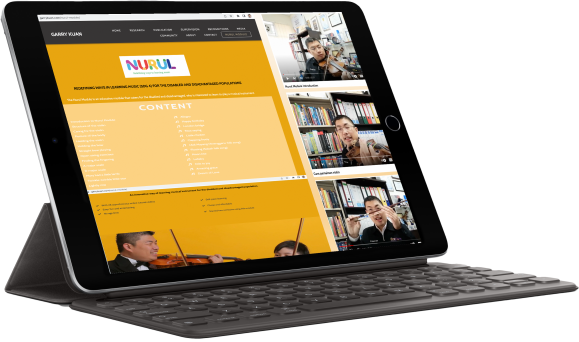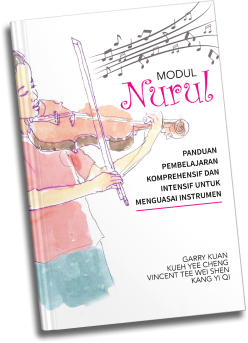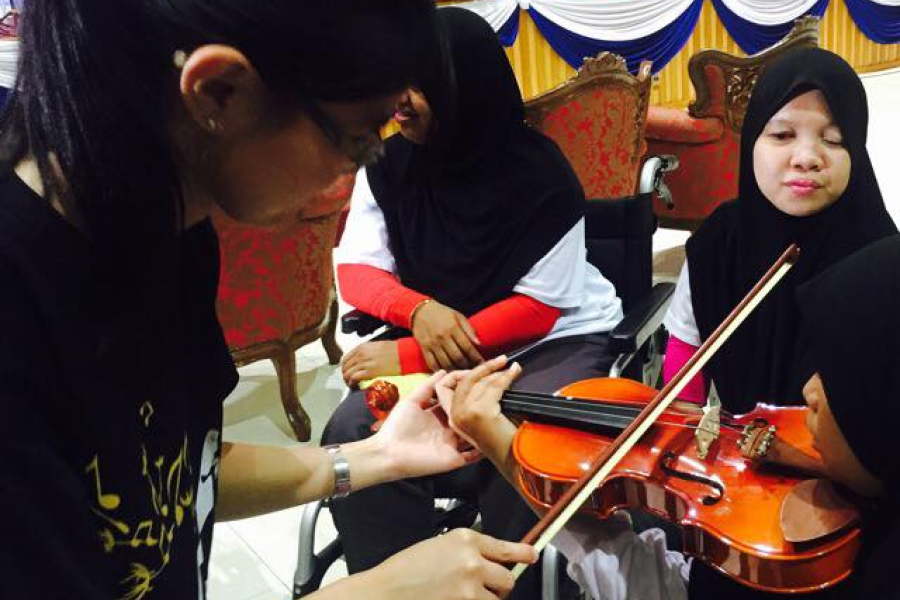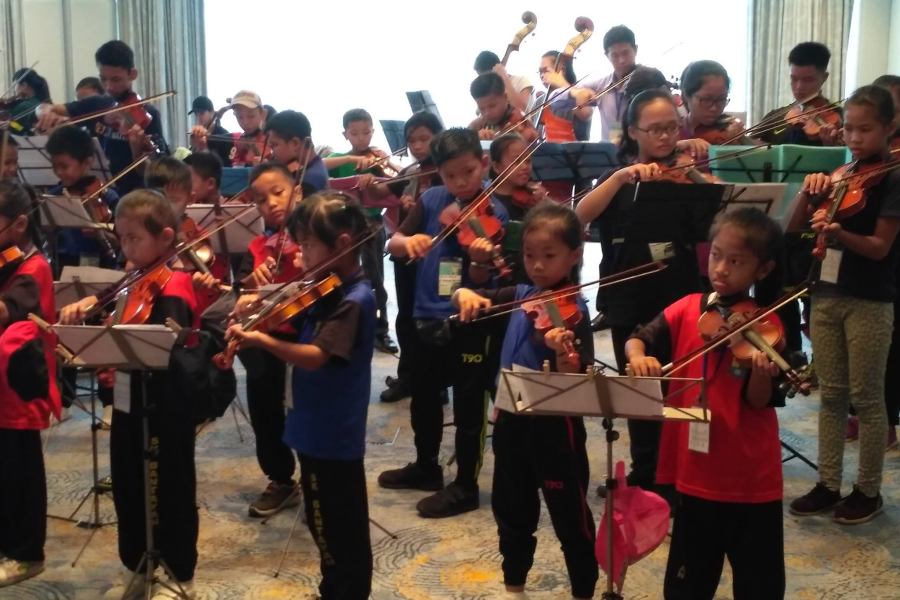Nurul Module: Redefining Ways in Learning Music (SDG 4) For the Disabled and Disadvantaged Populations
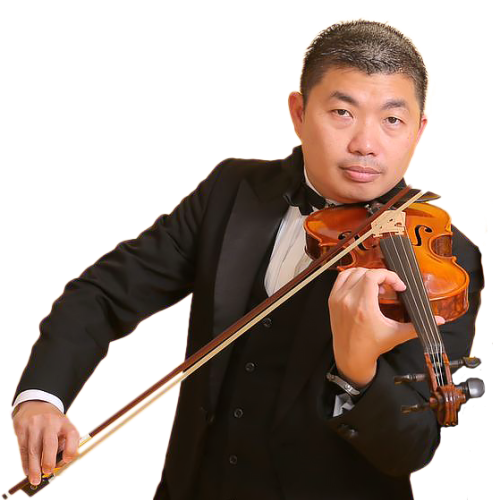
Assoc Prof. Dr. Garry Kuan Pei Ern
Dr. Kueh Yee Cheng
Dr. Vincent Tee
Ms Kang Yi Qi
Musical intervention has been a clinical and evidence-based approach in therapies, however it is rarely addressed to children with special needs in Malaysia. Therefore, the Nurul Module was founded, which is a simplied, musical learning module specifically designed for the disabled. This is a simplied musical notation system to replace contemporary learning system, which is complex and requires a long extensive time to master the instrument. It is a guided fingering board marking, which each string 1 colour, each line 1 colour, and each note with 1 number. It is also colour-blind friendly educative module with precise engineered cut markings, which has different thickness. The educative module caters for the disabled and disadvantaged populations, who is interested to learn to play a musical instrument. Our studies showed significant improvement (p=0.001) on motor skills, cognitive skills and quality of life after four weeks of learning.
Problem Statement
- Musical interventions may become an alternative approach that influences the development of children with varied degrees of physical and psychological difficulties.
- Although learning to play music is something fun and elegant, yet it is considered as a luxury for the rich and something unachievable by the disabled and disadvantaged populations.
- Interestingly, music has been proven to be beneficial for the disabled and disadvantaged peoples, however, they often lack the financial and technical support for it.
Novelty and Inventiveness
- A simplied musical notation system to replace contemporary learning system, which is complex and requires a long extensive time to master the instrument.
- It is asynchronous learning – anytime you can master an instrument.
Applicability and Benefits
- With asynchronous online tutorial videos.
- 800+ individuals benefitted from the module.
- Started two orchestras using this module.
Research Achievement
- Nurul Module printed by USM Press with ISBN (MAPIM recognised).
- 1 ISI Publication (IJERPH – impact factor of 4.614).
- 1 ISI Submitted (in review, IJSEP – impact factor of 3.304).
- Financial support by Jabatan Kebajikan Masyarakat, Pusat Latihan Perindustrian dan Pemulihan Bangi (PLPP) and Malaysian Society of Gastroenterology and Hepatology.
Commercialization Potential And Industrial Partner
- JKM plagued to purchase 600 books to be circulated to the 574 PDKs in Malaysia.
- USM Press had promised to print 2000 books in 2023, thus, can maximise sales in local bookstores and online platforms (https://garrykuan.com/nurul-module/).
- Pusat Rancangan Kokurikulum, USM had used the module for teaching WCC108 Jazz Band since 2019 (online Webex and asynchronous learning).
- Collaborate with local leaders, healthcare centre, NGOs, social media influencers.
- (Jabatan Kebajikan Masyarakat, Pusat Latihan Perindustrian dan Pemulihan Bangi (PLPP), Jabatan Perkhidmatan Kebajikan Sabah, UNICEF Malaysia, YOKUK, USM Press, USMKK Symphony Orchestra, Pusat Rancangan Kokurikulum, USM.
- Support partners – The Foundation for Global Community Health and Jesselton Philharmonic Orchestra, Sabah.
Intellectual Property Status
3 Copyright (CRSR2021PO2007), (CRSR2021PO2009), ISBN (Nurul Module – USM Press).
Status of Invention
- Technology Readiness Level: 8 (In market and communities).
- 8 community centres (orphanage, special education, disadvantaged) using the module.
- 400 students in Sabah received a free instrument and using the module.
Impact of Innovation
- INDUSTRY: Jabatan Kebajikan Masyarakat recognises this method as the novel and quickest for learning a musical instrument. Two orchestras were successfully formed.
- ECONOMIC: Even disabled and disadvantaged individuals can make a living playing a musical instrument.
- SOCIETY: Four weeks of learning resulted in a significant (p=0.001) improvement in motor skills (steadiness test, finger tapping, simple reaction time), cognitive skills (digit span forward and backwards test, and sustained attention), and quality of life (physical, psychological, social relationship, and environmental).
- ACADEMIA: It is used by university’s co-curriculum as a module to teach university students, interested to master an instrument. We have collaboration with Keele University, UK, Seoul National University of Science and Technology, Korea, and Burapha University, Thailand.
